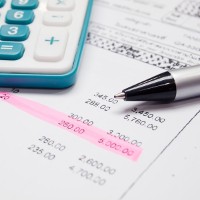

The goods and services tax could be raised to between 15% and 18% if the government takes on board recommendations released yesterday by the Organisation for Economic Co-operation and Development.
The suggestion comes as Australia faces a $40.4 billion deficit for 2014-15.
The OECD Economic Survey of Australia recommends shifting away from income taxation to indirect taxation, by raising more revenue from the GST.
The report argues there is “room to raise” the GST, as the current 10% rate is significantly lower than similar taxes in other countries. It says, consequently, this means the tax burden falls more on other taxes, including those on labour and business.
The OECD recommends Australia adopt a rate similar to countries such as New Zealand and Israel, which have wider base rates of 15% and 18% respectively.
The report also recommends increasing the use of land taxes, prioritising a reduction in the rate of corporate tax, abolishing stamp duties, and both rate cuts and threshold increases to personal income tax.
Broader suggestions include reform to federal-state financial relations and the monitoring of the proposed welfare higher education reforms.
Peter Strong, executive director of the Council of Small Business of Australia, told SmartCompany COSBOA members are split over a rise in GST, with industries such as pharmacy feeling a rise in GST would further exacerbate their cash flow issues.
Issues such as an increase in already-high property rents are also a concern to small business owners, says Strong.
“Just because it’s a good idea for New Zealand or for Israel, doesn’t necessarily mean it’s a good idea for us,” Strong says.
John Freebairn, professor of economics at the University of Melbourne, told SmartCompany increasing GST would only work as a part of a much broader tax reform package.
“If it’s sensible, it needs to be something like the package we had when the GST was brought in in 2000,” says Freebairn. “Part of the extra GST revenue would have to fund getting rid of some highly distorted indirect taxes, such as income tax.”
Freebairn says increasing the GST and reducing income tax would lead to tax reductions on capital income, which would make it easier for business big and small to attract international capital. That capital, he says, could be used to help business obtain better technology and machinery, which would then improve productivity.
“Then some of that productivity would go to profits, but most would go to wages. When real wages go up, there is an increased demand for business,” Freebairn says.
But Strong says promises by governments to cut corporate tax rates and reduce the tax burden on business are difficult to trust, given similar promises were made at the time the GST was first introduced.
“It’s nice to say these things, but where’s the guarantee? A lot of things they said they’d remove when they brought in the GST, such as payroll tax, never happened,” says Strong.
Strong says he believes Australia needs a consolidated approach to tackle tax reform that includes submissions from the different voices in the business community and society at large. He says COSBOA is happy to lead or participate in such a review.
“We need to coherent strategy around this. We need to talk about it properly and look at the good, the bad and the ugly and define the real issues,” he says.


COMMENTS
SmartCompany is committed to hosting lively discussions. Help us keep the conversation useful, interesting and welcoming. We aim to publish comments quickly in the interest of promoting robust conversation, but we’re a small team and we deploy filters to protect against legal risk. Occasionally your comment may be held up while it is being reviewed, but we’re working as fast as we can to keep the conversation rolling.
The SmartCompany comment section is members-only content. Please subscribe to leave a comment.
The SmartCompany comment section is members-only content. Please login to leave a comment.